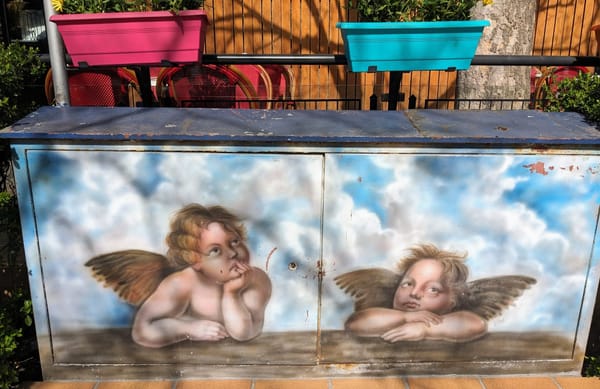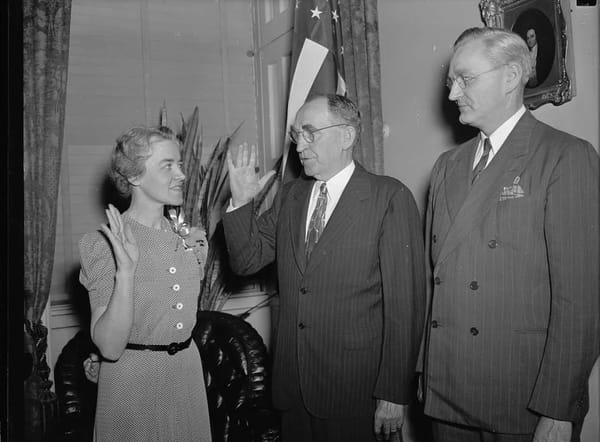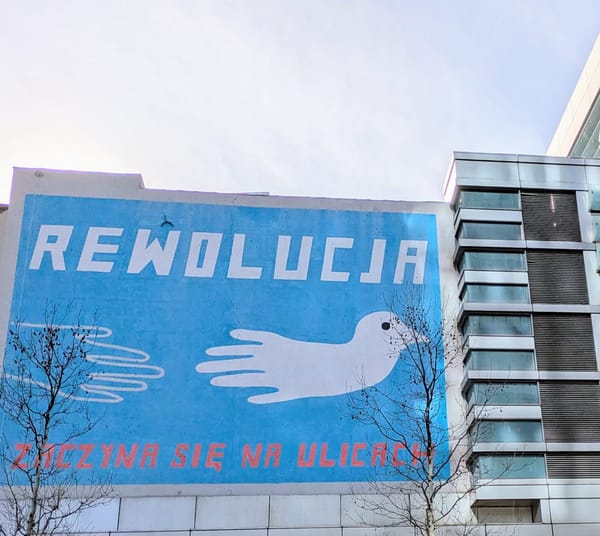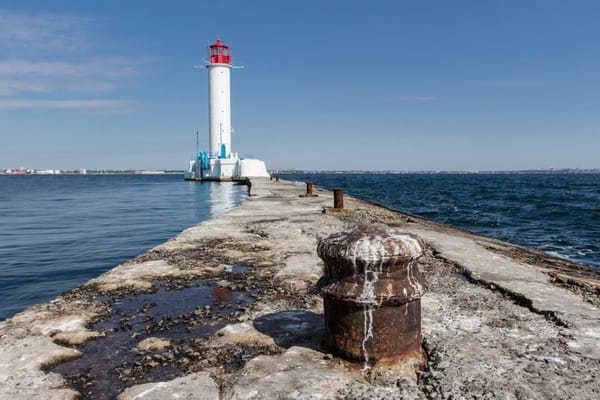Daphne's Law and lessons from Malta
The EU takes a step toward protecting journalists from punitive lawsuits
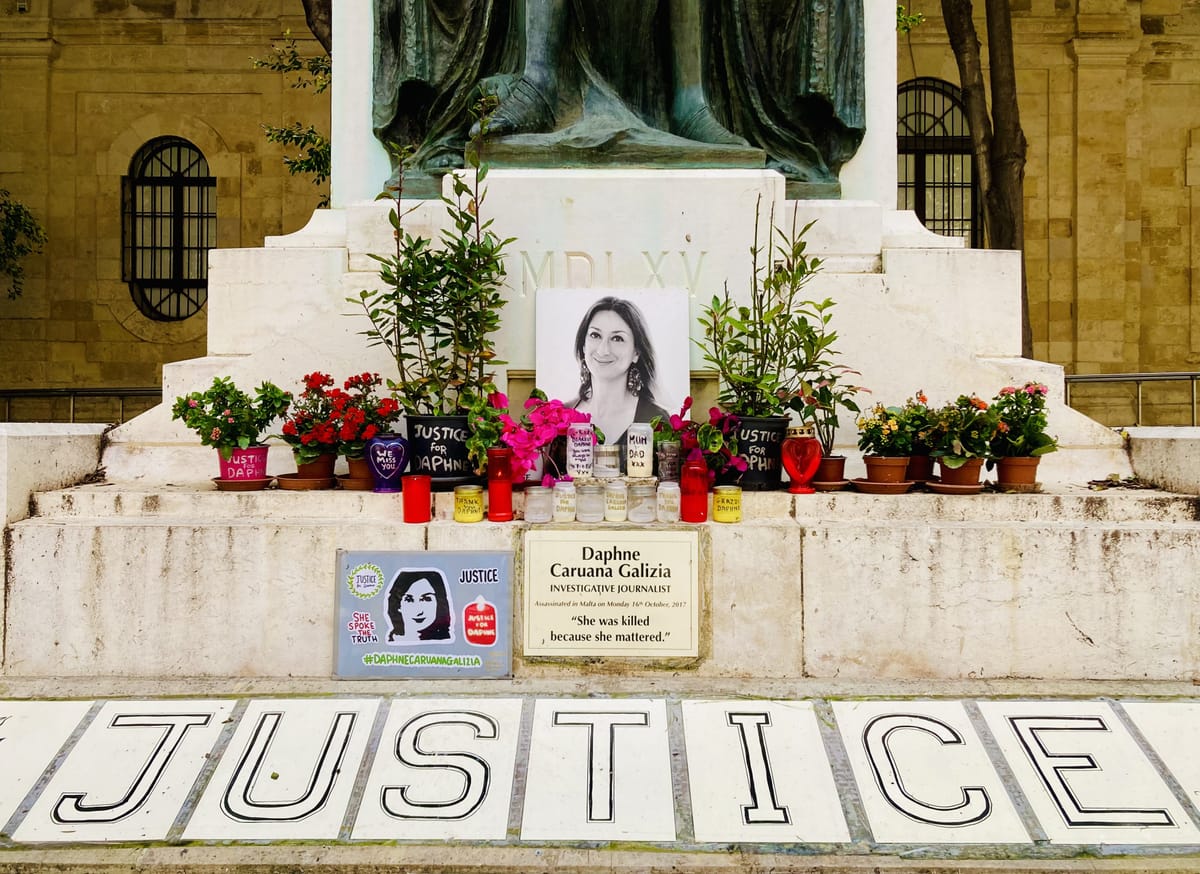
This week I journeyed from one country on the edge of a Europe on the edge, Bulgaria, to another, Malta. Not for falcons or knights. Rather with more recent history in mind. We of a certain vintage may remember the Malta Summit in December 1989, when George H. W. Bush and Mikhail Gorbachev declared an end to the Cold War. And because of the need for a bit of the famous refuge the country famously provides. The Phoenician word from which Malta derives, Melita, meant refuge. While Malta has been long conquered by various world powers, it has also long provided refuge to many, from St Paul to countless migrants. And also, it must be said, to some unsavory financial practices and corruption.
Which brings us to one important development in the battle for civic society in Europe and beyond—a development with a very Maltese influence. Malta also WAS the home of Daphne Caruana Galizia and IS the base for the Daphne Caruana Galizia Foundation. The foundation has been pushing for an important protection for journalists against moneyed opponents of independent inquiry and impactful reporting. One practice that oligarchs, certain US politicians, and corporations have used to silence their critics is called Strategic lawsuit against public participation suits—or SLAPPs. If this is a new term to you, I advise you to read up a bit about SLAPPs here. Or read a lot more here.

In short, imagine a reporter publishes a story (or even just a social media post) pointing to the impact of a company’s practices on, say, the safety of its workers. And the company sues the reporter and her newspaper for millions of dollars, knowing that they would not have the money to go to court. Essentially this silences the journalist and shields the company from criticism. Now the EU has taken a big step toward curbing this practice.
The European Parliament overwhelmingly approved a directive known as Daphne’s Law, “introducing two safeguards - early dismissal if the case is unfounded, and the possibility to ask the claimant to pay the estimated costs of proceedings, including legal representation of the defendant, and damages.” This directive is just the latest example of EU policy moves that benefit people far beyond the borders of Europe. Though not perfect, it is a big step toward recognizing that supporting independent journalism is essential to protecting civil society.
Thank you for reading Notes from New Europe. This post is public so feel free to share it.
Back to Daphne. In 2017 Daphne Caruana Galizia was killed for her persistence in holding the powerful accountable. It is important that we not define her by her death alone, so let’s take a moment to note how we all benefitted from her consistently fierce acts of journalism. Daphne was the first woman columnist in the Maltese press. She raised three boys, while working as a journalist, and studying at university. She launched two monthly magazines. She wrote regularly about corruption in Malta, and was an important part of the global team of journalists within the International Consortium of Journalists (ICIJ) that produced the Panama Papers.
In October 2017, just months after ICIJ won the Pulitzer Prize for the Panama Papers, Daphne was assassinated. While driving near her home, a bomb went off in her car, killing her instantly. Her son Matthew, a brilliant computer programmer, journalist and an important part of ICIJ’s data team, found her body 80 meters from the car.
Daphne’s commitment to exposing corruption in Malta drew attention from the people in the highest offices. They sued her for defamation to silence her before, well… At the time of her death, she was the target of more than forty libel cases, according to Matthew. This was such a frequent tactic for the family that Matthew told the Times of Malta, “Growing up, I thought these kind of lawsuits were normal and it’s the price you had to pay for being a journalist.”
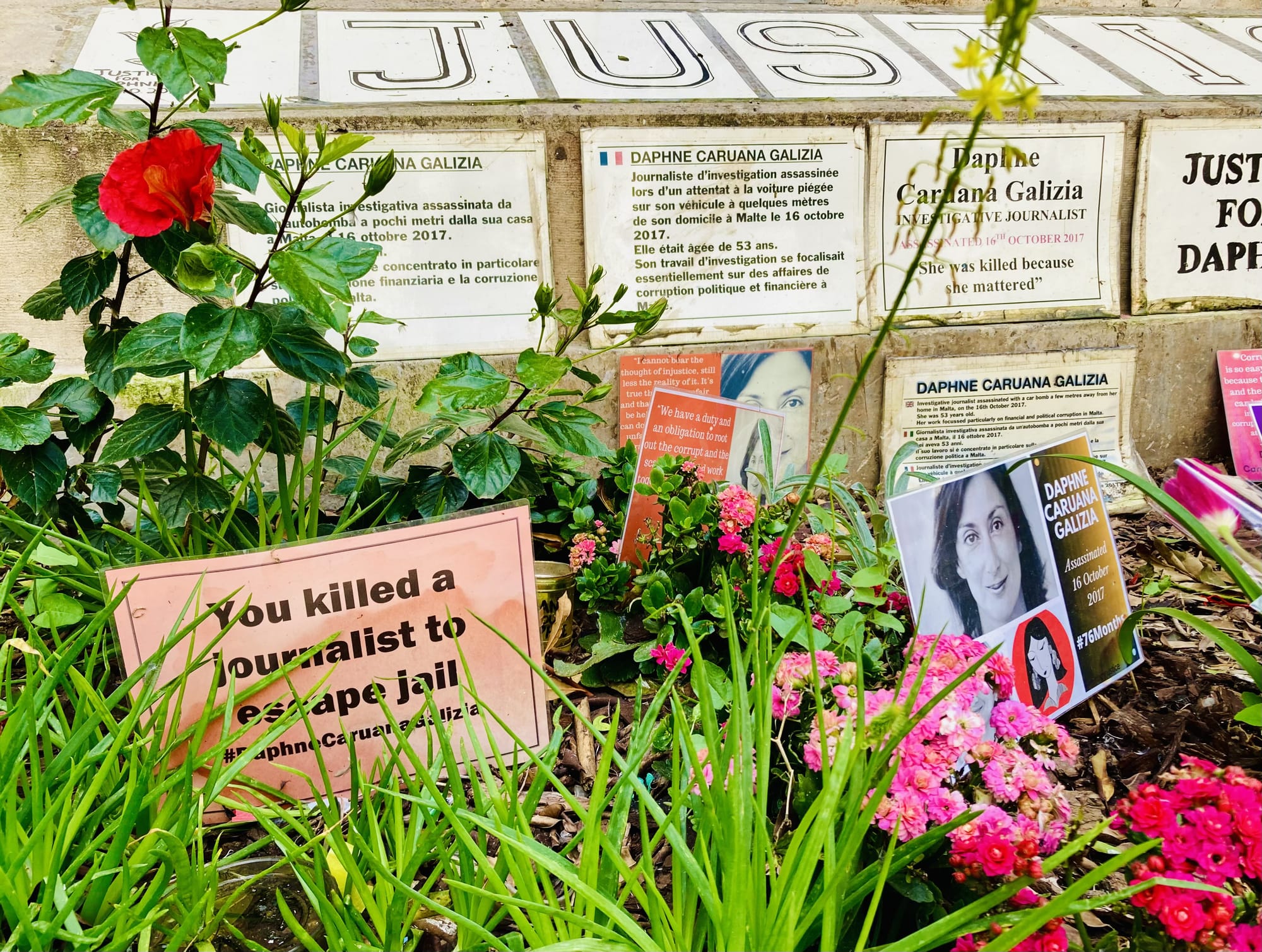
Matthew, as head of the foundation that carries his mother’s name, has been helping to lead the fight for anti-SLAPPs legislation. And the success in Brussels is down in part to him and the foundation following Daphne’s lead. The coming months will require Matthew, his family, and their colleagues pushing the leaders in Malta to codify Daphne’s Law through legislation. All while the trials against Daphne’s alleged killers and those complicit proceeds.
I ask you, dear reader, to consider the importance of legislators legislating. It has become increasingly vexing to consider how much we journalists frame issues through the political lens, so that we absolve politicians from governing. If we (and I mean we journalists) check our framings and remember Daphne’s work as a journalist, we might appreciate the European Parliament’s actions in shoring up civic society in efforts to protect journalists working on behalf of we the people.
Additional reading:
Daphne’s son, and Matthew’s brother, Paul released his book, A Death in Malta, late last year.
In advance of the book’s release, he shared an extract from the book with the Guardian.
